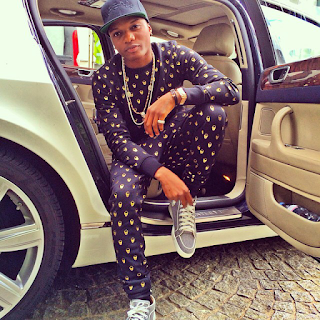Gianni Infantino as the new FIFA President
Gianni Infantino became the most powerful man in world football on Friday after winning a FIFA presidential race he appeared to enter out of necessity more than desire.
The suspension of UEFA president Michel Platini from all football-related activity due to a payment of two million Swiss (£1.3million) signed off by Infantino's predecessor Sepp Blatter at FIFA in 2011 left the European federation in urgent need of a candidate.
Platini had long been viewed as Blatter's heir apparent, but the suspension of both men – they saw their eight-year bans reduced to six this week – left world football in a stateof flux.
Blatter's departure would no longer be stage-managed at the Zurich extraordinary conference in the way he envisaged.Shorn of the star quality of Platini, UEFA turned to the former France captain's loyal lieutenant.
UEFA general secretary Infantino was backed by the organisation's executive committee to stand in the FIFA election hours before the October 26 deadline for candidates to confirm their challenge.
While his rivals were busy fleshing out ambitious, wide-sweeping visions for a FIFA badly in need of reform, Infantino was still willing to talk himself out of the race before Platini's absence was made more permanent in December.
"My candidacy is not in opposition to Michel," Infantino toldBBC Sport. "If he is able to stand, I will withdraw. It's a simple principle of loyalty.
"Loyalty to a now discredited former colleague did not undermine the progress of the multi-lingual lawyer, whose successful campaign was backed by football luminaries such as Alex Ferguson, Arsene WengerandJose Mourinho– all of whom paid tribute to his years of service to the game and backed a manifesto built on key pillars of reform, democracy, participation and football development.
Born in 1970 in the Swiss municipality of Brig-Glis – less than 10 kilometres from Blatter's native Visp – Infantino studied law at the University of Fribourg in his homeland and is fluent in English, French, German, Spanish and Italian.
He holds dual-nationality on account of his family's heritagein the Italian regions of Calabria and Lombardy.
Prior to joining FIFA in 2000, Infantino was secretary general of theInternational Centre for Sports Studies(CIES) at the University of Neuchatel, having also worked as an adviser to a variety of football bodies in Italy, Spain and Switzerland.
After working across legal and commercial projects, he wasappointed as UEFA's director of legal affairs and club licensing division in January 2004.
On its official website, UEFA also identifies Infantino as working to forge strong links with the European Union, the Council of Europe and other governmental bodies before ascending to the general secretary role in 2009.
Infantino is most closely associated with his work implementing Platini's two flagship policies – expanding the European Championships to become a 24-nation tournament and the implementation of Financial Fair Play rules aimed at promoting sustainability among clubs competing in UEFA competitions.
He has pledged to mirror those initiatives as FIFA president and plans to increase the World Cup finals by eight teams to feature a total of 40 countries.
Appointed to the FIFA Reform Committee in August 2015, Infantino will now be tasked with driving that process on histerms following a result that looks set to empower UEFA on the back of growing antagonism between the governing body and Blatter over recent years.
The suspension of UEFA president Michel Platini from all football-related activity due to a payment of two million Swiss (£1.3million) signed off by Infantino's predecessor Sepp Blatter at FIFA in 2011 left the European federation in urgent need of a candidate.
Platini had long been viewed as Blatter's heir apparent, but the suspension of both men – they saw their eight-year bans reduced to six this week – left world football in a stateof flux.
Blatter's departure would no longer be stage-managed at the Zurich extraordinary conference in the way he envisaged.Shorn of the star quality of Platini, UEFA turned to the former France captain's loyal lieutenant.
UEFA general secretary Infantino was backed by the organisation's executive committee to stand in the FIFA election hours before the October 26 deadline for candidates to confirm their challenge.
While his rivals were busy fleshing out ambitious, wide-sweeping visions for a FIFA badly in need of reform, Infantino was still willing to talk himself out of the race before Platini's absence was made more permanent in December.
"My candidacy is not in opposition to Michel," Infantino toldBBC Sport. "If he is able to stand, I will withdraw. It's a simple principle of loyalty.
"Loyalty to a now discredited former colleague did not undermine the progress of the multi-lingual lawyer, whose successful campaign was backed by football luminaries such as Alex Ferguson, Arsene WengerandJose Mourinho– all of whom paid tribute to his years of service to the game and backed a manifesto built on key pillars of reform, democracy, participation and football development.
Born in 1970 in the Swiss municipality of Brig-Glis – less than 10 kilometres from Blatter's native Visp – Infantino studied law at the University of Fribourg in his homeland and is fluent in English, French, German, Spanish and Italian.
He holds dual-nationality on account of his family's heritagein the Italian regions of Calabria and Lombardy.
Prior to joining FIFA in 2000, Infantino was secretary general of theInternational Centre for Sports Studies(CIES) at the University of Neuchatel, having also worked as an adviser to a variety of football bodies in Italy, Spain and Switzerland.
After working across legal and commercial projects, he wasappointed as UEFA's director of legal affairs and club licensing division in January 2004.
On its official website, UEFA also identifies Infantino as working to forge strong links with the European Union, the Council of Europe and other governmental bodies before ascending to the general secretary role in 2009.
Infantino is most closely associated with his work implementing Platini's two flagship policies – expanding the European Championships to become a 24-nation tournament and the implementation of Financial Fair Play rules aimed at promoting sustainability among clubs competing in UEFA competitions.
He has pledged to mirror those initiatives as FIFA president and plans to increase the World Cup finals by eight teams to feature a total of 40 countries.
Appointed to the FIFA Reform Committee in August 2015, Infantino will now be tasked with driving that process on histerms following a result that looks set to empower UEFA on the back of growing antagonism between the governing body and Blatter over recent years.







Comments
Post a Comment